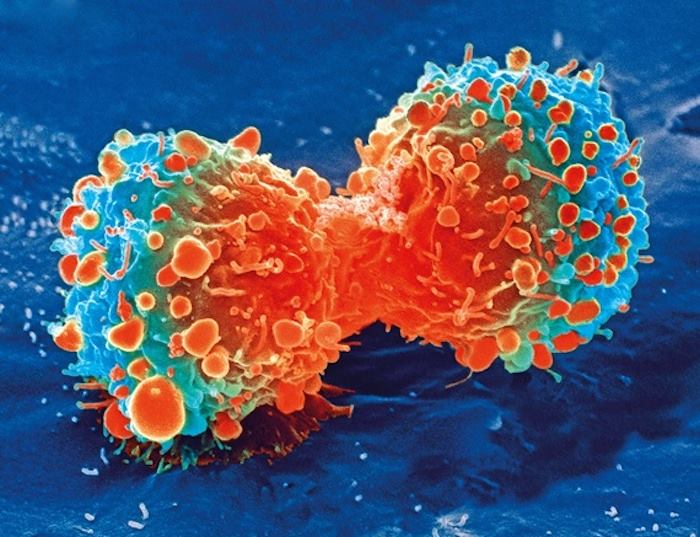Researchers at UT Southwestern Medical Center have found an “Achilles heel” in a metabolic pathway crucial to stopping the growth of lung cancer cells. At the heart of this pathway lies PPARγ (peroxisome proliferation-activated receptor gamma), a protein that regulates glucose and lipid metabolism in normal cells. Researchers demonstrated that by activating PPARγ with antidiabetic drugs they could stop lung cancer cells from dividing.
“We found that activation of PPARγ causes a major metabolic change in cancer cells that impairs their ability to handle oxidative stress,” said Dr. Ralf Kittler, Director of the McDermott Next-Generation Sequencing Core at UT Southwestern. “The increased oxidative stress ultimately inhibits the growth of the tumor. We found that activation of PPARγ killed both cancer cells grown in a dish and tumors in mice, in which we observed near complete tumor growth inhibition.”
The study, published in the journal Cell Metabolism, builds on a large body of work showing that metabolism in cancer cells is altered when compared to normal cells. Changes in metabolism can make cancer cells more vulnerable to therapeutic agents, which make them a good target to investigate for cancer therapy.
Kittler and his team determined that PPARγ activation triggers changes in glucose and lipid metabolism that cause an increase in the levels of reactive oxygen species (ROS). ROS are highly reactive oxygen-containing molecules that damage cells when present at high levels, a phenomenon known as oxidative stress. It is this increase in ROS that eventually stops the cancer cells from dividing.
“The abnormal metabolism in cancer cells frequently causes increased oxidative stress, and any further increase can ‘push’ cancer cells over the cliff,” said Dr. Kittler.
The findings suggest that targeting PPARγ could be a promising new therapeutic approach for lung cancer and potentially other cancers. The researchers saw that activating PPARγ caused similar molecular changes in breast cancer cells.
“This is an important finding because the drugs that activate PPARγ include FDA-approved antidiabetic drugs that are relatively well tolerated compared to chemotherapy. Knowing their mechanism of action provides us with clues for selecting tumors that may be responsive to this treatment, for combining these drugs with anti-cancer drugs to make therapy more effective, and for developing markers to measure the response of tumors to these drugs in patients.”
“Of course, further study will be required to determine the therapeutic effectiveness of PPARγ-activating drugs for lung cancer treatment,” Kittler added.
Source: Nishi Srivastava, Rahul K. Kollipara, Dinesh K. Singh, Jessica Sudderth, Zeping Hu, Hien Nguyen, Shan Wang, Caroline G. Humphries, Ryan Carstens, Kenneth E. Huffman, Ralph J. DeBerardinis, Ralf Kittler. Inhibition of Cancer Cell Proliferation by PPARγ Is Mediated by a Metabolic Switch that Increases Reactive Oxygen Species Levels. Cell Metabolism, 2014; 20 (4): 650 DOI: 10.1016/j.cmet.2014.08.003
Journal Link: http://bit.ly/1y3YEa2
Image: Dividing lung cancer cell.












